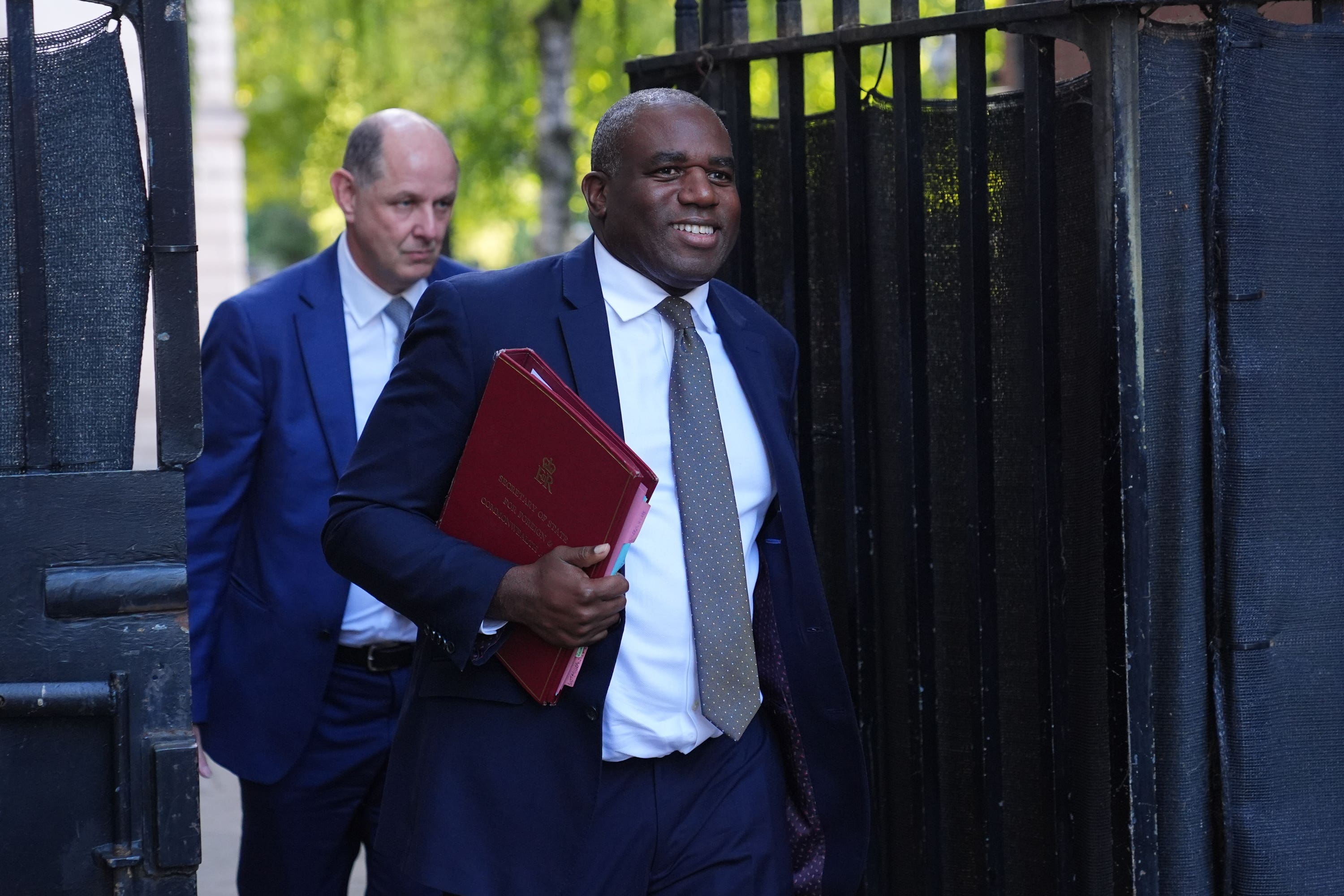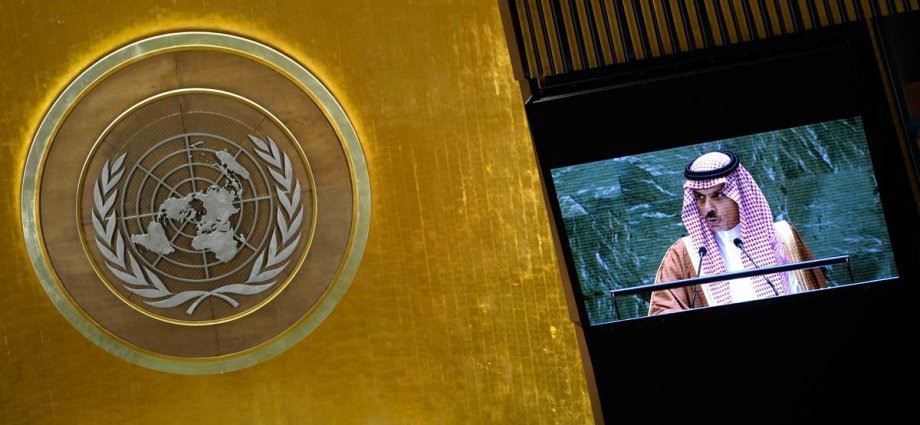Parliamentary pressure is building on the UK government to vote against Saudi Arabia’s bid for a seat on the United Nations Human Rights Council (HRC), in what has been described as a “litmus test” for the new Labour administration.
A letter to foreign secretary David Lammy – signed by MPs and peers from across parties – outlines concerns over the Kingdom’s human rights record, including the jailing of women’s rights advocates and a surge in executions.
Shared exclusively with The Independent, it warns that electing Saudi Arabia to the council would “undermine global confidence” in the UN’s ability to “protect human rights” and pleads with the foreign secretary “not to vote for such an unsuitable candidate”.

The UN General Assembly is set to select 18 new members for three-year terms on Wednesday. Human rights groups argue that the vote faces little competition, raising concerns about Saudi Arabia’s potential success.
The prime minister and the foreign secretary are now facing calls from within their party to act.
The letter, coordinated by the Labour MP Andy Slaughter, was signed by eight MPs and nine peers including the former shadow leader of the House of Commons Wera Hobhouse, former secretary of state for Scotland Alistair Carmichael, former Brexit secretary David Davis and Green Party MP Ellie Chowns.
Liberal Democrat peer Lord Scriven expressed concerns that the new government would “fall into the trap that the last government did, where trade and arms sales trump human rights”.
“If the government refuses to vote against Saudi Arabia going on the UN human rights council, then it is clear it is business as normal when it comes to foreign policy”, he told The Independent.
Lord Scriven warned that the vote is a “litmus test for the new Labour government in terms of how it’s going to use its foreign policy to improve human rights across the world”, calling for Sir Keir’s administration to use its “voice and influence” to ensure Saudi Arabia does not secure a space on the council.
The letter highlights Saudi Arabia’s history of misleading the HRC about its human rights abuses and argues that electing such a nation would violate the council’s mandate — which requires members to uphold the highest standards of human rights.
The plea comes as it was revealed the Kingdom had its bloodiest execution year on record under reformist leader Crown Prince Mohammed bin Salman. Already this year, more than 198 people have been executed in the country, eclipsing the 1990 record.

Three child defendants in Saudi Arabia – Abdullah al-Derazi, Youssef al-Manasif and Abdullah al-Howaiti – face imminent execution despite being minors at the time of their alleged offences. The letter suggests all three were reportedly tortured into signing false confessions, with al-Derazi and al-Manasif sustaining severe physical injuries.
The death sentences come despite Saudi “promises to the UN”, the letter says, not to execute minors.
The non-profit organisation Reprieve has previously presented a submission to parliament covering the cases, and the head of its work in the Middle East and North Africa, Jeed Basyouni, told The Independent the Saudi authorities are acting as if “they have carte blanche to kill who they want when they want”.
She said its toll is “terrifying” and that the UK government and other member states should vote “no” and “seek a stop to this spiralling execution crisis.”
Despite efforts by the Saudi Arabian government to portray itself as making strides in gender equality and human rights, activists and politicians have criticised its record. Saudi border guards are accused of killing hundreds of Ethiopian migrants attempting to cross from Yemen in 2022-23, actions that some critics say could constitute crimes against humanity.
The kingdom is yet to fully account for the 2018 murder of journalist Jamal Khashoggi, which was planned and perpetrated by Saudi officials, according to a UN special rapporteur.
Mr Davis warned that a failure to oppose Saudi Arabia’s membership would show that it is not “serious about what the membership requires”. He told The Independent such a decision would suggest it is treating the council as a “diplomatic convenience, not something that sets a standard”.
Liberal Democrat MP Angus MacDonald tabled a question in the House of Commons in September asking the Foreign Office’s stance on the bid. Middle East minister Hamish Falconer responded on Monday, saying the UK “does not disclose voting positions on multilateral elections” but that the government expects elected members to “uphold the highest standards in the promotion and protection of human rights”.
A Foreign Office spokesperson said: “The UK does not disclose voting positions on multilateral elections.“
The Saudi Embassy in London was approached for comment.











